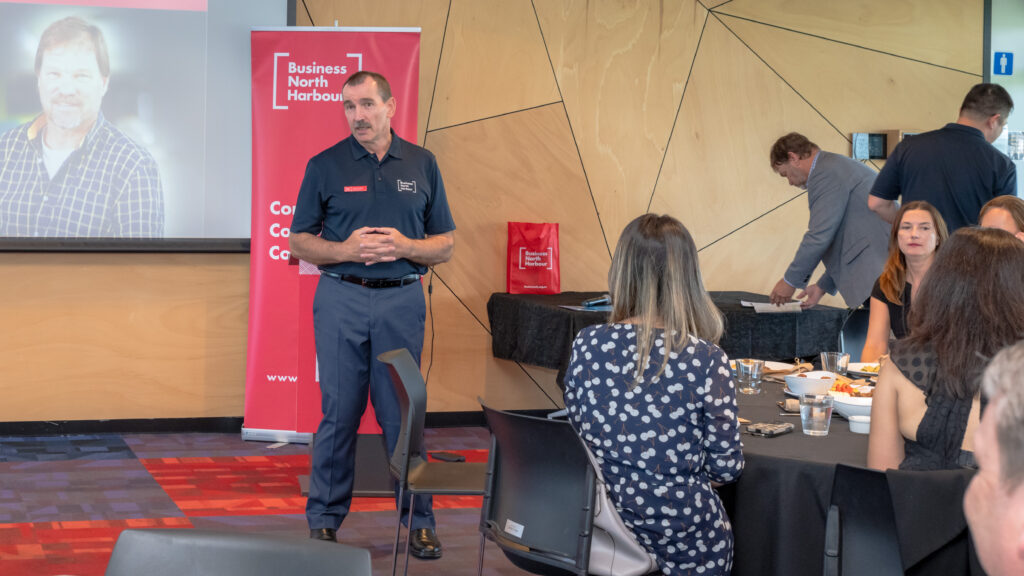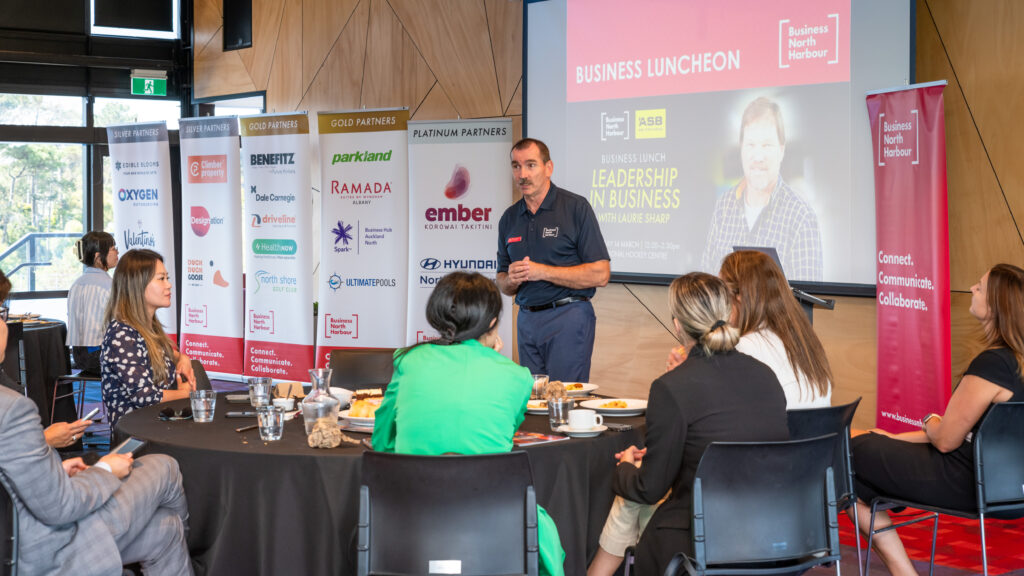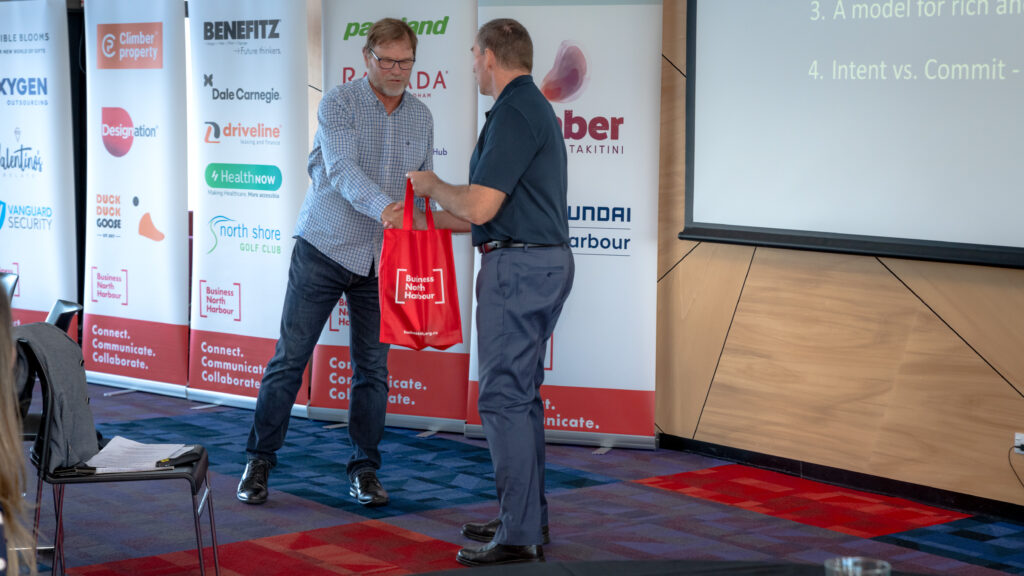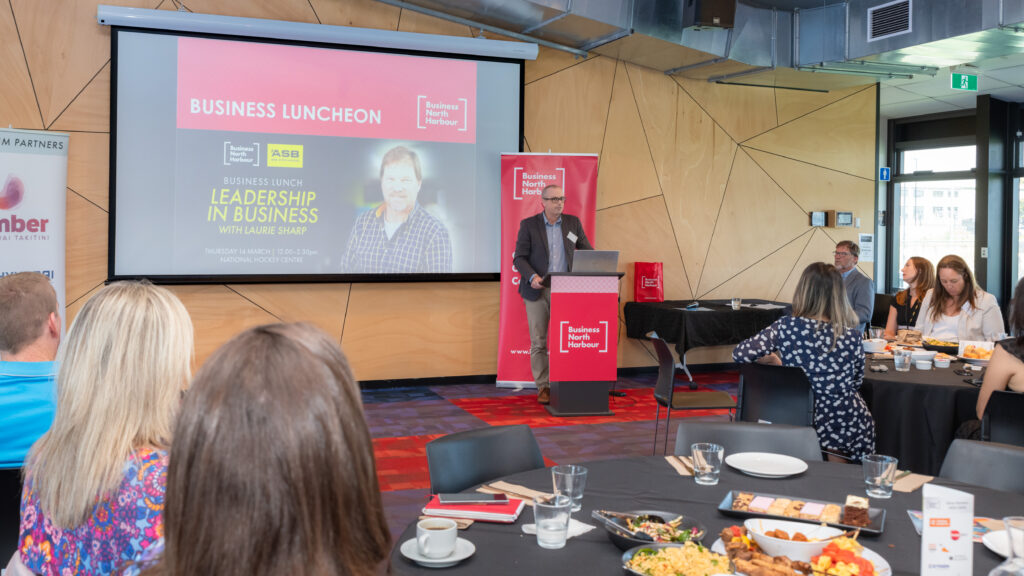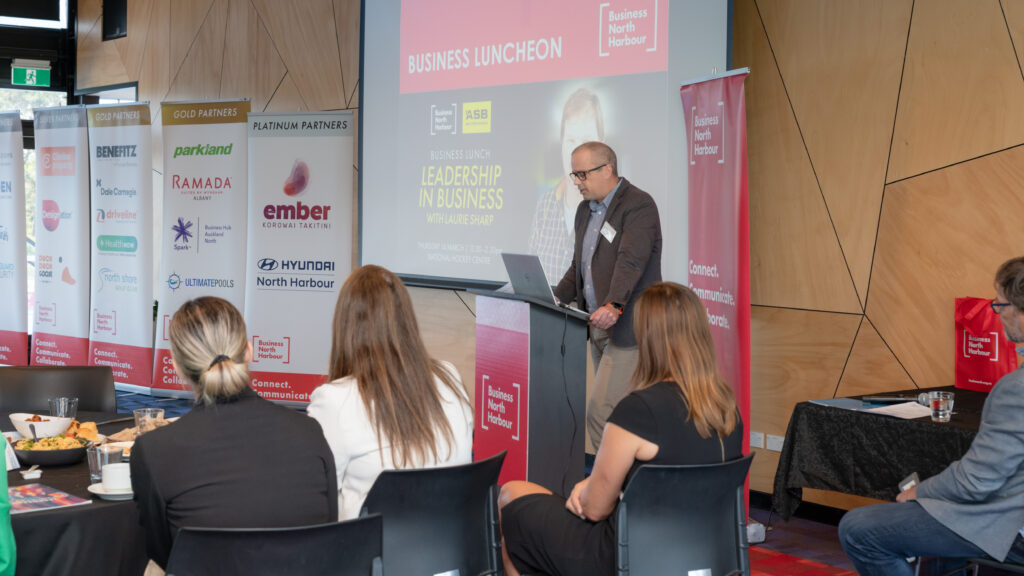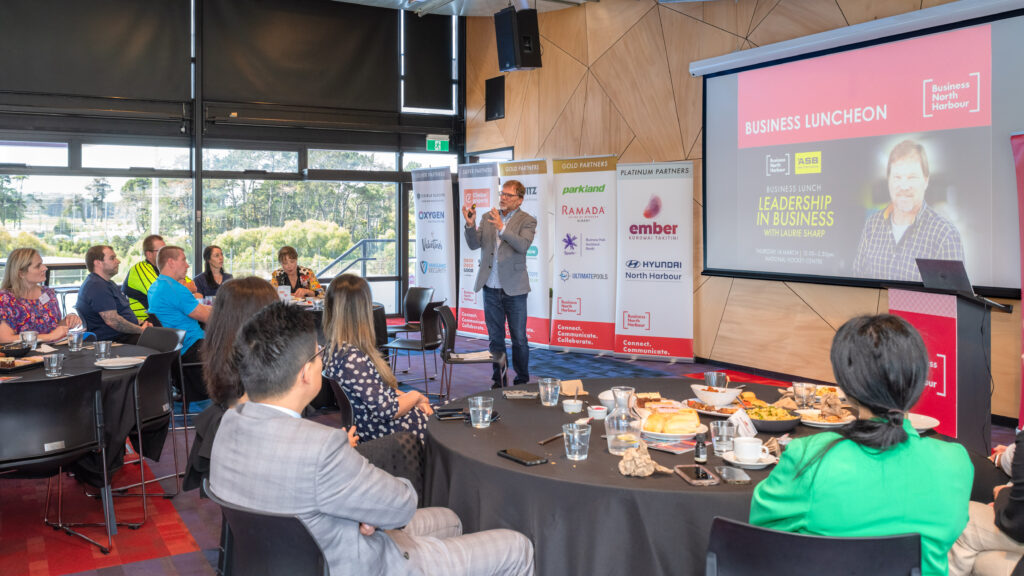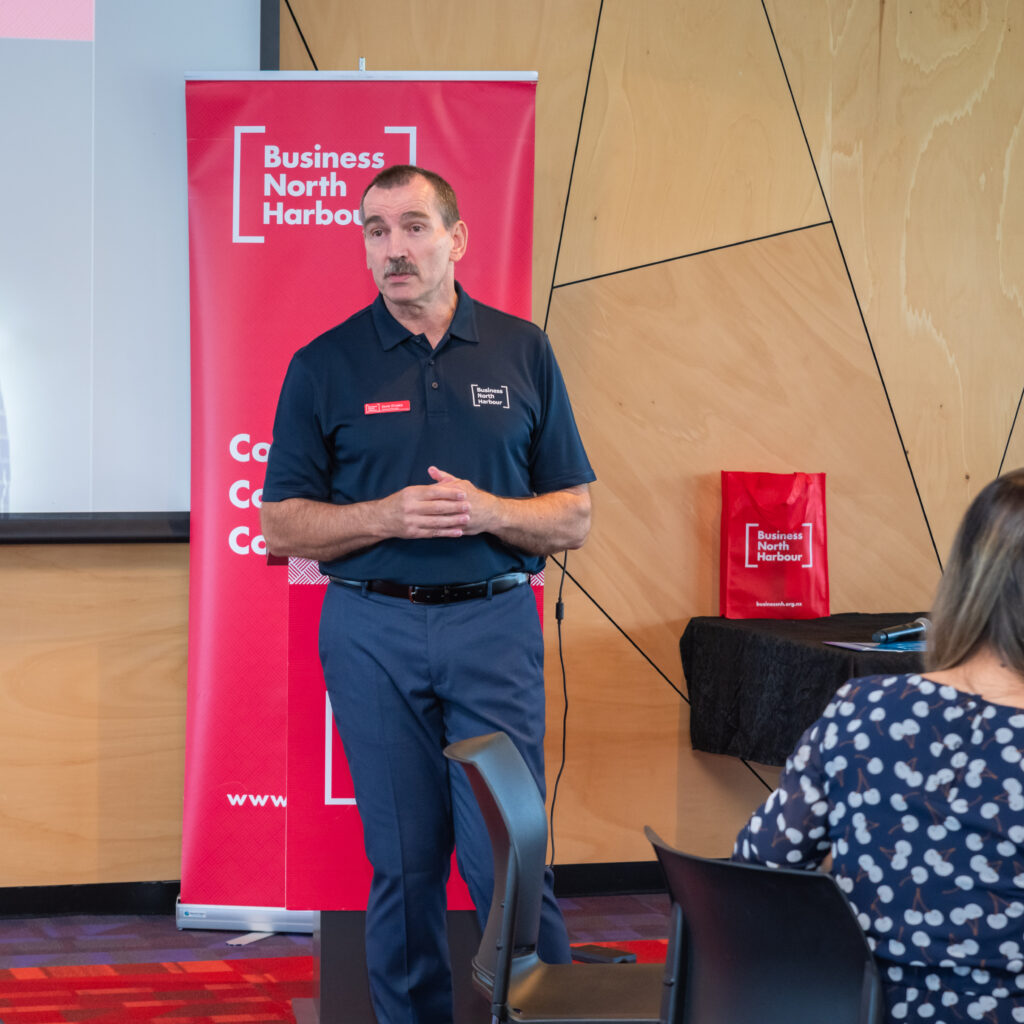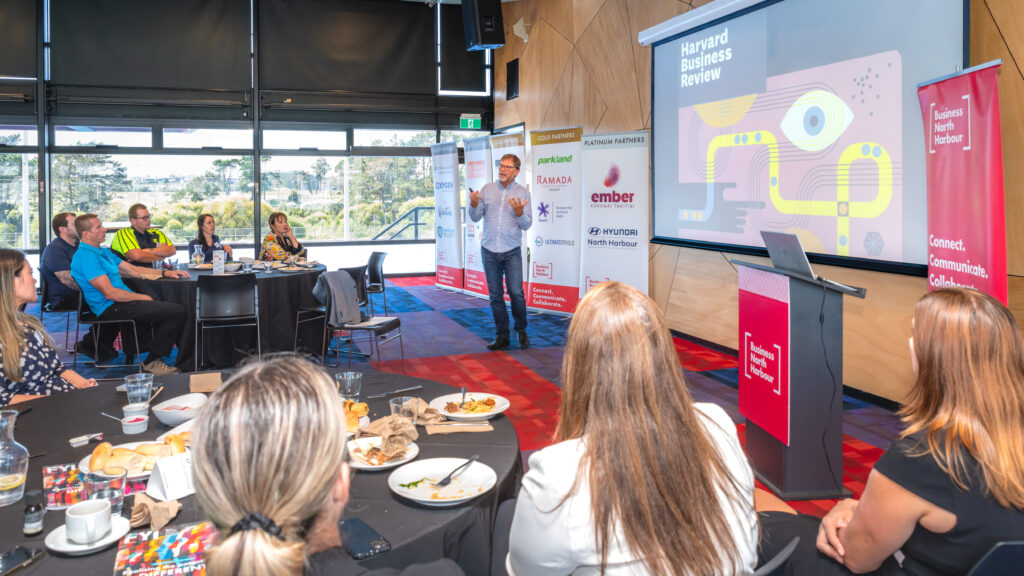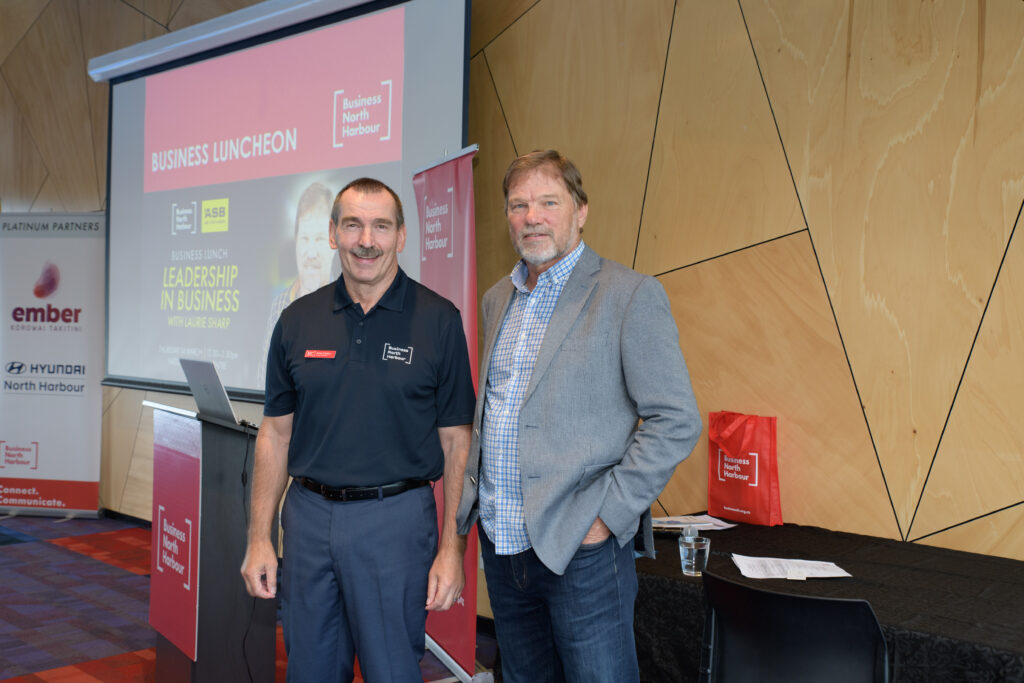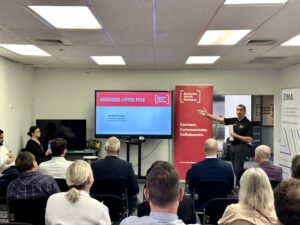14th March 2024
Business Lunch
National Hockey Centre
Business North Harbour’s second lunchtime event of 2024 attracted another excellent turnout of more than 50 business owners, managers, and team members.
ASB’s northern regional commercial manager, Duncan McKenzie, introduced guest speaker Laurie Sharp as someone “deeply passionate about coaching and development”. Laurie has worked in banking for over 43 years, 30 of which were with ASB. His focus has always been on people, overseeing both internal training and working with external clients, including Deloitte, New Zealand Law Society, Coca-Cola, and KPMG.
For today’s session, he drew on personal experiences whilst referencing international research to explain the crucial differences between management and leadership – and the latter’s numerous advantages.
In a nutshell, it comes down to rational vs emotional, telling vs asking, the “what” vs the “how” and the “why”. Always telling someone what to do results in defiance – that’s as true for your teenager at home as it is for your employee at work! However, when someone feels engaged, when they have belief in the vision of a company, they’ll act. And this is the biggest single driver of bottom-line performance. But, to achieve this, the belief has to be 100 per cent.
Effective leaders possess three essential qualities: courage, vulnerability, and humility. They need to have genuine relationships with their teams with meaningful dialogue, including feedback about what employees want and need and how well these are being delivered by the business. Scoring elements on a scale of one to 10 gives clarity and shows clear areas for potential improvement.
As well as encouraging staff to appraise their “superiors”, they should also have the opportunity to rate themselves. How are they performing; how are they feeling; how could their motivation be improved; how well do they understand their goals and expectations? Again, the scores are invaluable indicators, especially when accompanied, for example, by a question like, “How could we boost your score from two to six?” (Don’t aim for huge improvements in one go, e.g., from one to nine. Measurable, realistic steps to continued improvement are preferable.)
By embracing their vulnerability and putting simple, regular reviews in place, business leaders can turn their organisations around.
Recommended reading:
Quiet Leadership by David Rock
Built to Last: Successful Habits of Visionary Companies by Jim Collins
